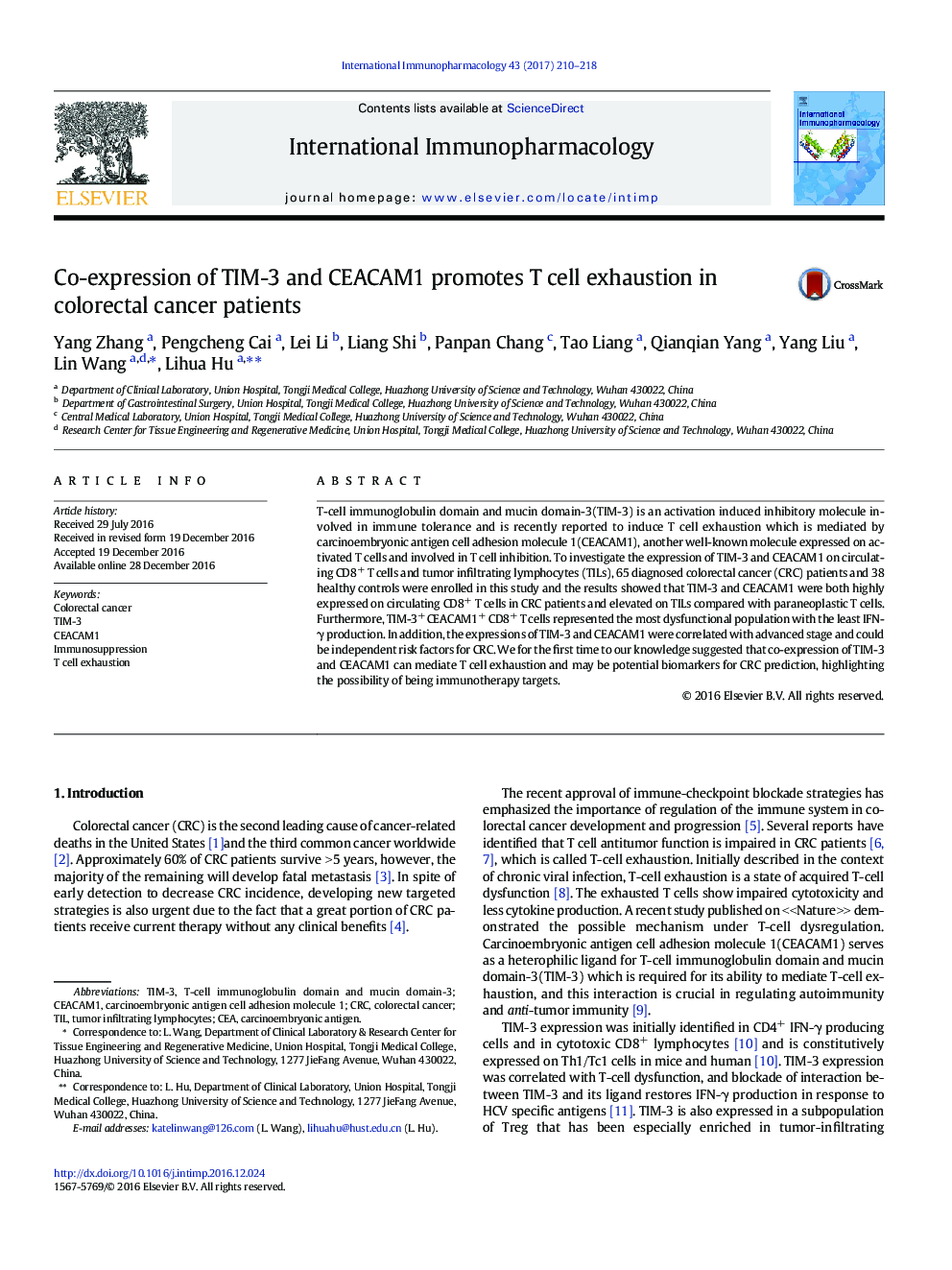| Article ID | Journal | Published Year | Pages | File Type |
|---|---|---|---|---|
| 5555384 | International Immunopharmacology | 2017 | 9 Pages |
â¢Identification of two potential immuno-markers for colorectal cancer.â¢Their co-expression mediates T cell exhaustion and promotes cancer progression.â¢The connection between markers and clinical features implies for targeted therapy.
T-cell immunoglobulin domain and mucin domain-3(TIM-3) is an activation induced inhibitory molecule involved in immune tolerance and is recently reported to induce T cell exhaustion which is mediated by carcinoembryonic antigen cell adhesion molecule 1(CEACAM1), another well-known molecule expressed on activated T cells and involved in T cell inhibition. To investigate the expression of TIM-3 and CEACAM1 on circulating CD8+ T cells and tumor infiltrating lymphocytes (TILs), 65 diagnosed colorectal cancer (CRC) patients and 38 healthy controls were enrolled in this study and the results showed that TIM-3 and CEACAM1 were both highly expressed on circulating CD8+ T cells in CRC patients and elevated on TILs compared with paraneoplastic T cells. Furthermore, TIM-3+ CEACAM1+ CD8+ T cells represented the most dysfunctional population with the least IFN-γ production. In addition, the expressions of TIM-3 and CEACAM1 were correlated with advanced stage and could be independent risk factors for CRC. We for the first time to our knowledge suggested that co-expression of TIM-3 and CEACAM1 can mediate T cell exhaustion and may be potential biomarkers for CRC prediction, highlighting the possibility of being immunotherapy targets.
